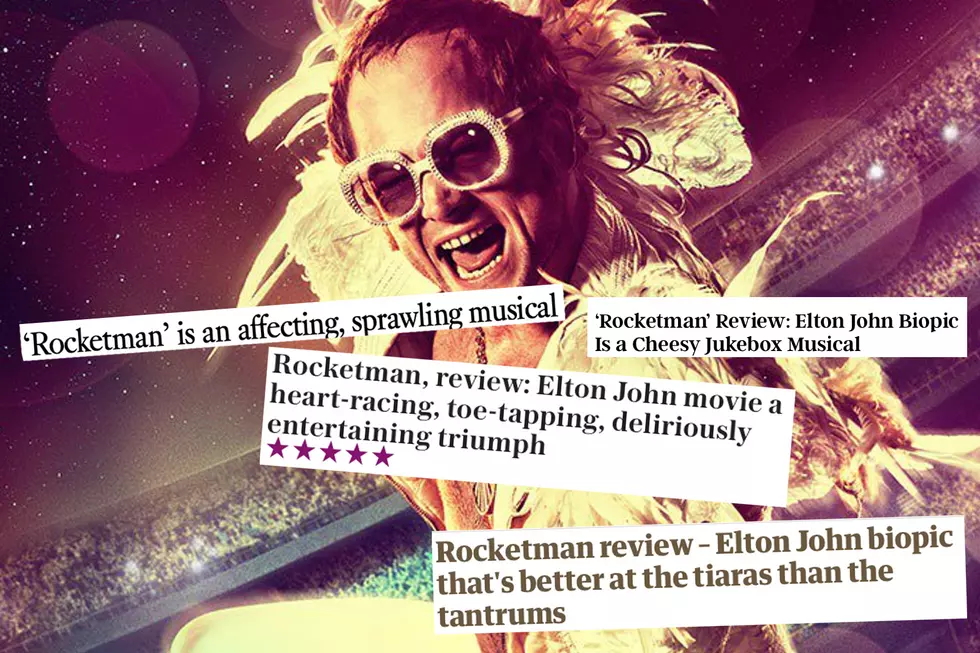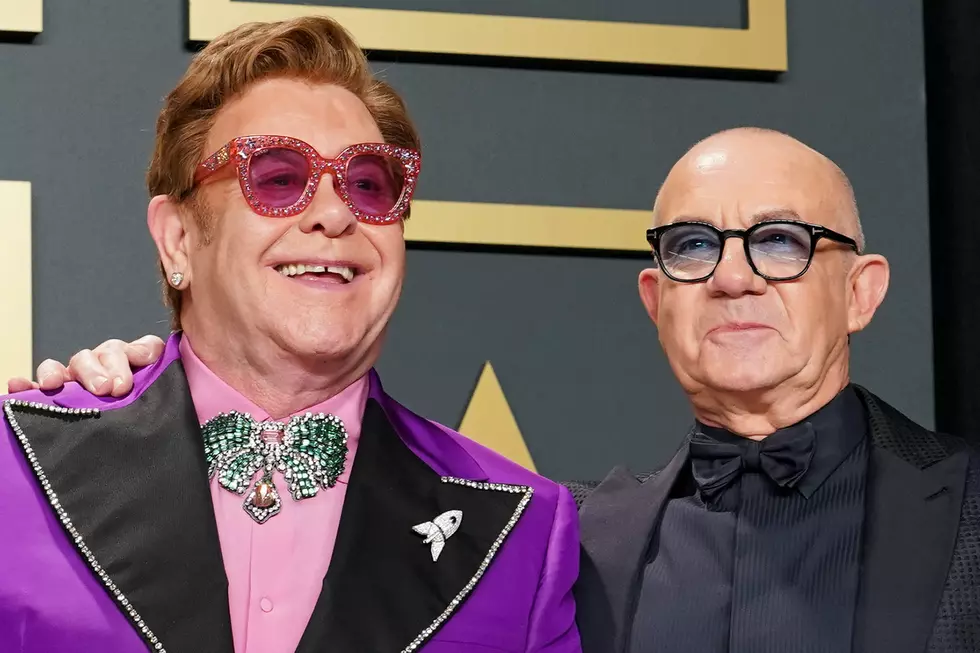
Elton John Adds His Own Rave to First Reviews for ‘Rocketman’
The new Elton John biopic Rocketman debuted to a standing ovation yesterday at the Cannes Film Festival – and its main subject has joined the chorus of praise.
"To be honest with you, I was blown away," John said in a new Paramount Pictures interview. "I was very moved. I cried the first time I saw it, and I cried a lot this time. ... I'm very, very proud of this movie."
The script focuses on "Elton John's early rise to stardom and his flirtation with self-destruction in Dexter Fletcher's glittery bio-musical fantasy," according to The Hollywood Reporter. "Younger audiences raised on the Baz Luhrmann school of montage-driven spectacle should also get a kick out of the movie's orgy of glitter, glory and grit, not to mention costumer Julian Day's dazzling parade of flamboyant glam-rock stage couture."
Paramount Pictures will release Rocketman on May 31 in theaters nationwide. Star Taron Egerton handles both the narrative scenes and the vocals, putting John's storied catalog front and center. "Above all, it’s a snazzy, overproduced vessel for the songs," IndieWire said, "as Taron Egerton gives the karaoke performance of his life in a sufficient impersonation of a very familiar face."
They weren't the only critics to note that the music presents its own distinctive challenges. The Guardian acknowledged that Rocketman "had the burden of following or living up to Elton John's sensational songs, the masterpieces which each seem like mini-movies in themselves."
Still, that big-screen quality is something that was always apparent to Bernie Taupin, John's principal songwriting collaborator. "Our songs do have a cinematic quality to them: They're stories," Taupin said in the same Paramount interview. "It was a wonderful experience. I echo Elton's feelings, 100 percent. I mean, it was very emotional. There were a couple of scenes in it where I was quietly sobbing, to be quite honest."
Perhaps more controversially, the film takes an R-rated approach to John's life, with frank depictions of gay sex and drug use. In so doing, Rocketman effectively portrays John as "that rarest of movie archetypes: a gay sex symbol," according to Variety.
"I knew Taron could sing," John added, "and as soon as I met him, I felt that there was something special there. When I first heard him sing 'Don't Let the Sun Go Down on Me,' I was flabbergasted. I went, 'God, this is so difficult to sing. This is just as good as my version, really.' There are some very, very dark moments in the movie, but the music lifts it out of the darkness. Not only did he have to perform my life, he had to sing my life. And that's a double whammy. When I look at him singing, and when I look at him acting, I'm not looking at Taron Egerton. I'm looking at me. So, that's what moves me: This is me here.""
Rocketman "opts for a more fantastical style as opposed to a straightforward biopic rhythm," according to Entertainment Weekly. That might help it stand out in the wake of Bohemian Rhapsody, the out-sized recent biopic that Rocketman will undoubtedly be measured against. The Telegraph describes the new film as a "heart-racing, toe-tapping, all-glitter-cannons-blazing triumph on its own terms – but because of its subject matter and crowd-pleasing approach, the early reviews will almost certainly compare it to Bryan Singer's Freddie Mercury wiki-biopic."
All of that took a backseat at Cannes, however, as Rocketman became something of a surreal experience for its real-life protagonists. "You don't imagine a movie being made about your life," Taupin admitted. "They usually do that about people who have passed away – and luckily we're still around to appreciate it!"
Elton John Albums Ranked
More From Ultimate Classic Rock









